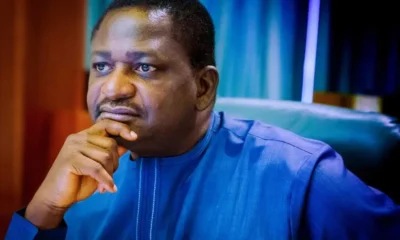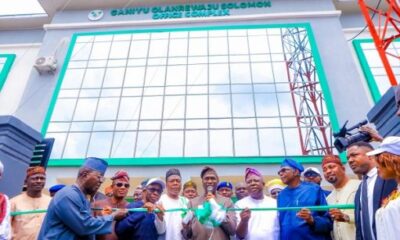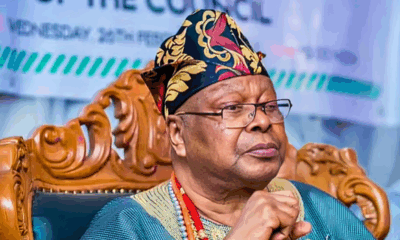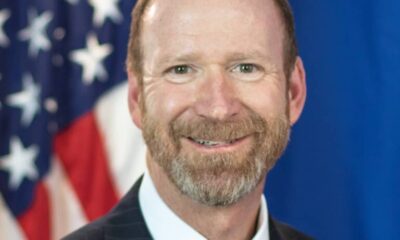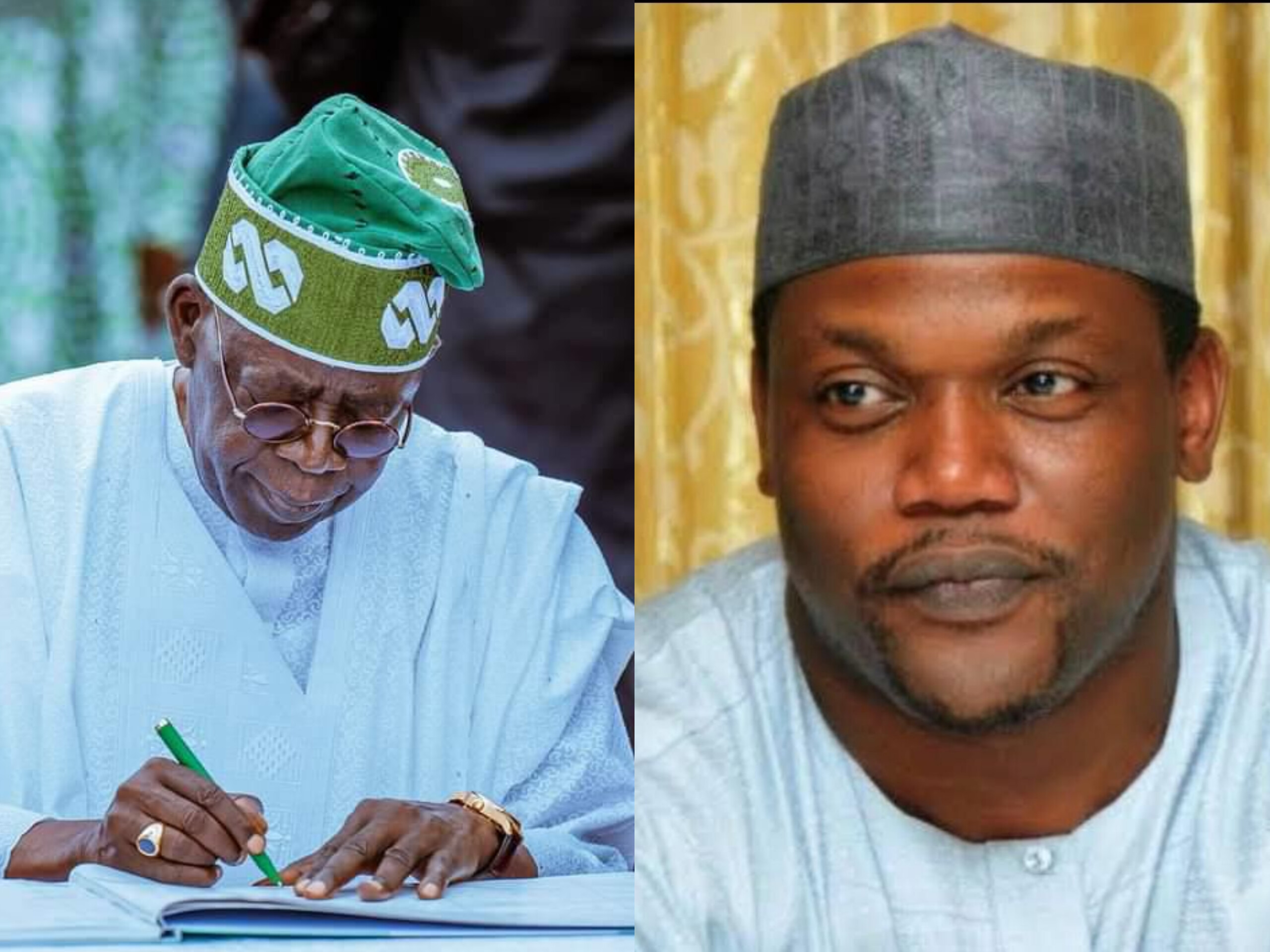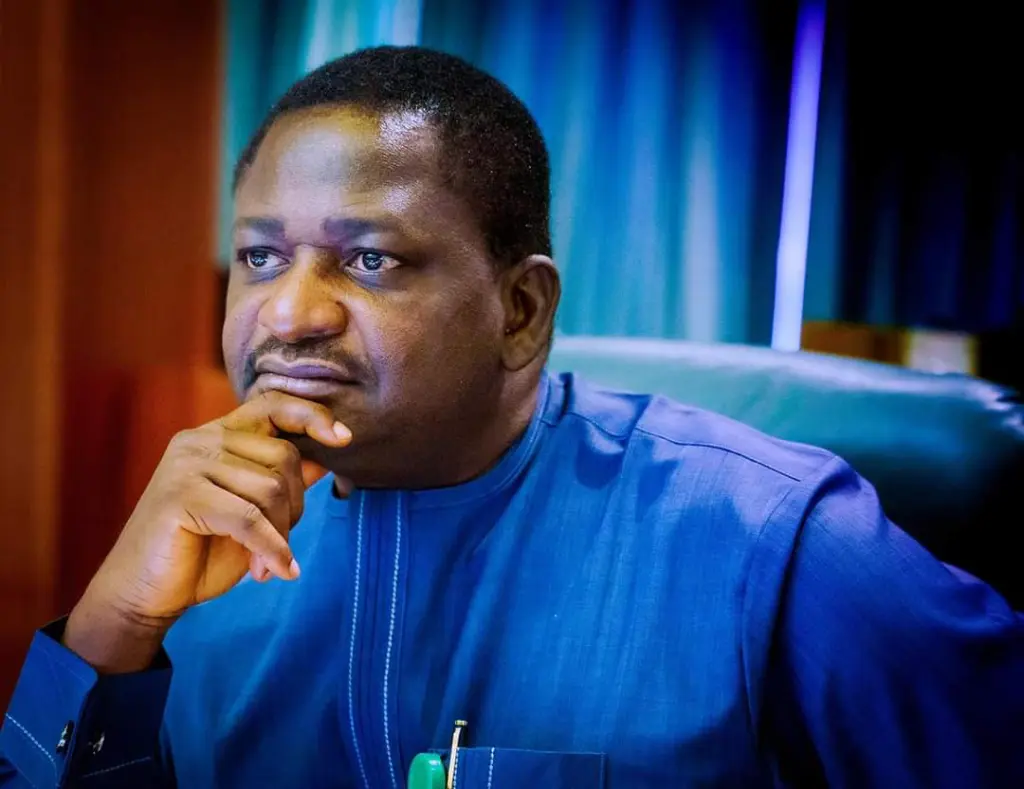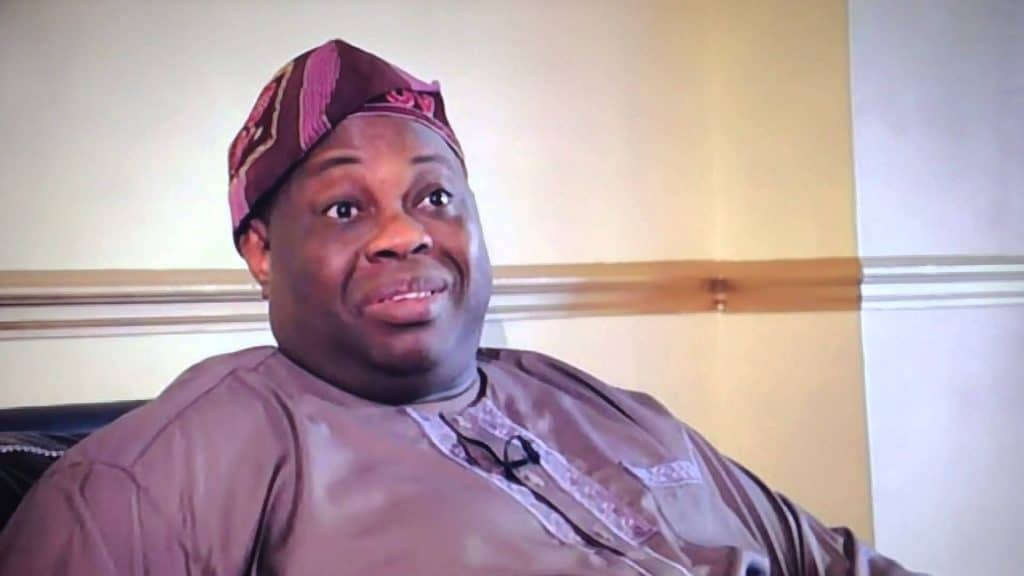According to the statement on Thursday, Anap Foundation president and founder, Atedo Peterside, said the nationwide poll was conducted by NOI Polls Limited in early September 2022.
The poll revealed that 32 percent are undecided on their preferred candidate.
It added that 13 percent each are proposing to vote for the presidential candidate of All Progressives Congress (APC), Asiwaju Bola Ahmed Tinubu and that of the Peoples Democratic Party (PDP), Atiku Abubakar, who are both tied in second place.
In the poll data, Rabiu Kwankwaso was a distant fourth, with 3 percent of voters proposing to vote for him.
“The gender split of undecided voters shows that 39 percent of women are undecided versus 27 percent of male voters,” the statement reads.
The poll also revealed that 15 percent refused to reveal who they would vote for.
Responding to the viral poll in a statement signed by Bayo Onanuga, Tinubu’s camp dismissed equivocally the NOI polls saying it is inconsistent with reality.
It further accused the NOI of using fake, dubious statistics to package its preferred candidate to the Nigerian voters.
“We are unperturbed by these dubious and unreliable statistics because our research shows that NOI Polls have been off the mark at critical election periods in recent times”.
Analyzing why the NOI polls shouldn’t be a yardstick to measure the success of any presidential candidate in the 2023 election, Onanuga said, “The attention of the APC Presidential Campaign Council has been drawn to a poll conducted by the NOI polls which made wild and incredible permutations on the presidential elections”.
“We are unperturbed by these dubious and unreliable statistics because our research shows that NOI Polls have been off the mark at critical election periods in recent times.
For example, preparatory to the March 2015 presidential elections, NOI published in October 2014 the results of a “Viability Poll” which used the concepts of Familiarity and Net Favourability Position to survey”.
“In the results, NOI claimed that President Goodluck Jonathan has the best overall familiarity rating at 99% and a Net Favourability Probability of ±25.
By contrast, NOI dismissed the then All Progressives Congress candidate, Muhammadu Buhari as a “borderline candidate” who needed ” huge public relations” to shore up his performance”.
“But when the Nigerian people went to the polls, who won? The APC candidate and now President, Muhammadu Buhari”.
“This is not the only instance when the NOI has turned its political bias in an election period to fraudulent statistics”.
“Towards the 2019 presidential elections, and knowing fully that President Muhammadu Buhari was going for re-election for a second term in office, the NOI pollsters embarked on another abracadabra. In June 2017, they issued the results of another poll, that Nigerians prefer a middle-aged president claiming that this poll was inspired by the election of Macron as the president of France and the campaign of the Not Too Young To Run”.
“According to the predictable bias, NOI claimed that 64% said they would prefer to vote for a presidential candidate between the ages of 40 and 50 years, and 15% preferred candidates between 51 and 60. In short, for a presidential candidate in his 70s running for re-election, NOI results meant certain defeat. But when the Nigerian people went to the polls on February 23, 2019, the man the NOI polls had tried to bully with statistics out of the race won again”.
“It is significant that at the time NOI was generating unrealistic figures to boost the ego of President Jonathan, a more serious and independent team of pollsters- Neo-Telligence based in the United Kingdom used geo-demographics and public sentiment analysis to forecast the emergence of President Buhari. By contrast, their empirical analysis showed that two years before the 2015 presidential elections, Goodluck Jonathan’s public approval rating on corruption, insecurity, and the economy had nosedived across most of the battleground states”.
“Our objective profiling of NOI Polls as an anti-APC research organization is grounded on the aforesaid facts and that is why we believe this present report is, in the language of Nigerians, “wuruwuru to the answer”.
“The NOI has chosen the preferred candidate and has decided to use fake, dubious statistics to package him to the Nigerian voters”.
“We know, as a matter of fact, the owners of NOI and where their political interest lies and wish to advise NOI to stop polluting the political system with irresponsible, unscientific, and biased polling so that we don’t expose the puppeteers pulling its strings”.
“Our party is putting every necessary machinery in motion to win the federal elections with a margin that will be too wide to contest. Our candidate, Asiwaju Bola Ahmed Tinubu recorded the highest votes of a senator across the country under the Social Democratic Party in July 1992. He will do it on a nationwide scale on February 25.2023”.
Meanwhile, in the analysis provided in ANAP Foundation Presidential Polls, Tinubu came tops on the visibility of candidates, “When asked if respondents were aware of the various candidates vying for the Presidency, data gathered showed that 99 percent of the respondents were aware of Asiwaju Bola Ahmed Tinubu of the APC. 98 per cent were aware of Alhaji Atiku Abubakar of the PDP. 95 percent were aware of Mr. Peter Obi of LP and 74 percent were aware of Dr. Rabiu Kwankwaso of the NNPP. All other candidates scored below 55 percent in terms of name recognition,” Peterside stated.
The top five reasons why voters are more inclined to vote in the forthcoming elections, according to the poll, are; “The need to tackle insecurity (45 percent), the Economy (20 percent), Education (9 percent), Unemployment (7 percent) and Poverty alleviation (4 percent).”
Peterside however concluded that the poll is inconclusive because the number of undecided voters is large enough to turn the tables.
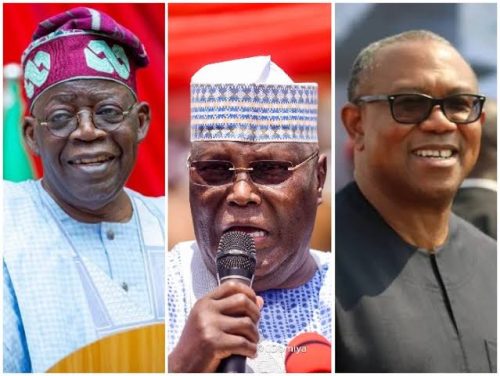

 BIG STORY4 days ago
BIG STORY4 days ago
 BIG STORY5 days ago
BIG STORY5 days ago
 BIG STORY4 days ago
BIG STORY4 days ago
 BIG STORY2 days ago
BIG STORY2 days ago
 BIG STORY5 days ago
BIG STORY5 days ago
 BIG STORY4 days ago
BIG STORY4 days ago
 BIG STORY2 days ago
BIG STORY2 days ago
 BIG STORY11 hours ago
BIG STORY11 hours ago






